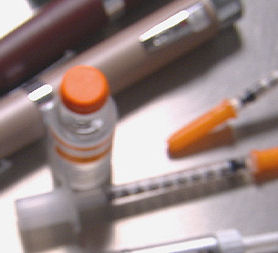Why diabetes is big business for drug companies
The numbers of those diagnosed with diabetes will continue to rise but, as Deborah Cohen, Investigations Editor of the BMJ explains, the cost to the NHS does not need to spiral out of control.

As one senior exec at one drug company, Sanofi Aventis, said this year: “Diabetes is one of the largest business opportunities in the healthcare space”. In the UK alone, diabetes is estimated to cost the NHS some £9bn, approximately 10 per cent of its entire budget.
There are two types of diabetes, type 1 and type 2, most of whom will require lifelong treatment. These costs aren’t just on drugs. Money is spent on health professionals, support services and the associated health complications of the illness. But it’s type 2 diabetes drug market that companies are particularly interested in. Driven by lifestyle-inactivity and obesity-and an ageing population, rates of type 2 diabetes are spiralling globally. And it’s a trend that’s set to continue.
By 2020 in England alone, it is estimated that there will be almost a million more people living with diabetes. The growth in expenditure on prescribing for diabetes is greater than any other major medical area.
Channel 4 News reports on diabetes investigation:
NHS wastes tens of millions on expensive diabetes drugs
A joint investigation by Channel 4 News and the BMJ reveals the NHS spends tens of millions more than necessary on modern insulins to treat diabetes despite guidance from NICE to use cheaper products.
Diabetes and insulin: your questions answered
Tom Clarke explains what the illness is and what you should do if you're affected.
Why diabetes is big business for drug companies
The numbers of those diagnosed with diabetes will continue to rise but, as Deborah Cohen, Investigations Editor of the BMJ explains, the cost to the NHS does not need to spiral out of control.
With a burgeoning diabetes population in need of lifetime treatment, it’s understandable that companies are keen to develop treatments. One problem is that new is not always better and that’s what organisations like NICE try to provide guidance on. One example, that NICE has provided guidance on is the use of new insulins compared to the older equivalent. The newer ones cost about two to three times more, but experts say they do not provide two to three times the benefit.
Studies have shown the increase in the amount of money spent on insulin has outstripped the increase in amount of insulin used. Whereas many drugs become cheaper over time – as similar drugs or generics enter the market – the unit cost of insulin used has actually increased. Put simply, the insulin we’re using is more expensive.
Does this extra cost matter? On an individual level the extra costs might seem small and worth it. But like any seemingly minor outgoings, these costs mount up.
The NHS will have to make efficiency savings of £20bn over the next four years and the BMA announced on Monday that an additional £2.3bn needs to be saved from staff pay. They also point out that pharmaceutical company profits have been spared from the cuts.
The NHS has a set budget and if it spends tens of millions more on diabetes drugs, for example, than it needs to, that money won’t be unavailable for other treatments or services. It’s what health economists call opportunity costs.
Figures collated for Channel 4 News suggest that if half of those taking analogue insulins had been put on human insulin instead the NHS would have saved £250m over the past five years. As a rough estimate, this money could have been spent on over 400 hospital consultants or 1,000 diabetes nurses in the same time period.
But for all the extra money being spent, we’re not getting necessarily getting better results. Studies have shown that people’s average blood glucose-which is one measure of diabetes treatment – has remained the same across the country for the last ten years.
While there are some benefits of the analogue insulins, we ultimately have to ask are we getting double the benefit for double the price?
Deborah Cohen is the Investigations Editor for the British Medical Journal.